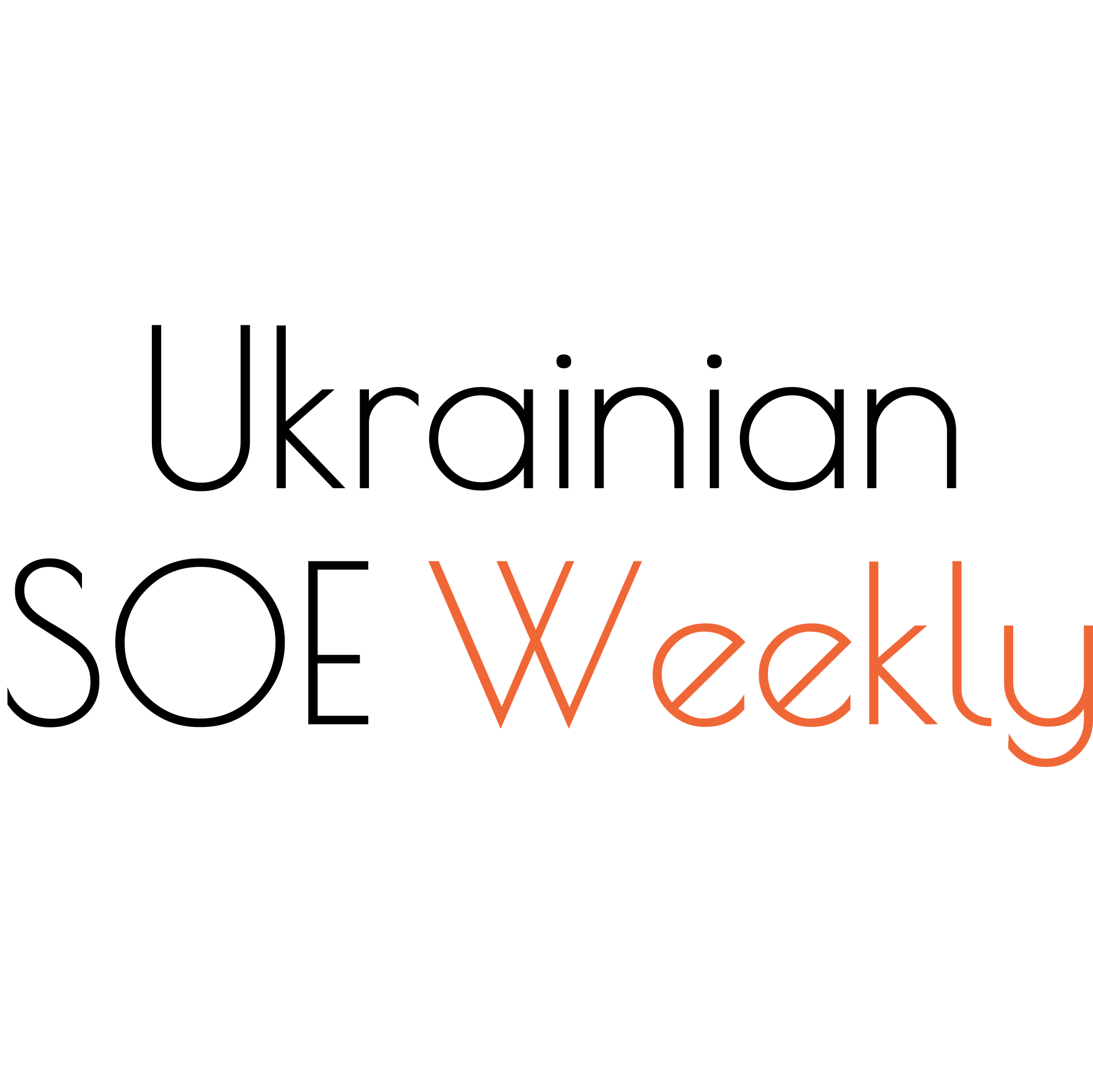Editor’s Note: This is the beginning-of-the-year issue of Ukrainian State-Owned Enterprises Weekly. The Kyiv Independent is reposting it with permission.
Adoption of draft law No. 5593-d on corporate governance at SOEs
Draft law No. 5593-d is called to improve the existing legislation on corporate governance of state-owned enterprises (SOEs) in Ukraine. On July 15, the Verkhovna Rada approved the draft law in the first reading. No information has been available publicly on further progress with the draft law or steps to be taken.
In terms of implementing the Organization for Economic Co-operation and Development (OECD) Guidelines on Corporate Governance of SOEs and the recommendations in the OECD Review of the Corporate Governance of the SOEs in Ukraine, draft law No. 5593-d proposes the following key improvements:
- It establishes the exclusive power of the SOE’s supervisory board to approve the SOE’s strategic and financial plans. This contributes to empowering the supervisory boards and allows holding them accountable for the SOE’s performance.
- It improves the dividend pay-out procedure and ensures equal treatment of all shareholders who have invested in SOEs. This will enable Ukrainian SOEs to invest in their development rather than have dividends arbitrarily collected by the state.
The current wording of the draft law No. 5593-d is not yet in full compliance with the OECD Guidelines on Corporate Governance of SOEs and requires improving.
To comply with the OECD Guidelines:
- The proposed law should establish the exclusive power of the SOE’s supervisory board to appoint and dismiss the CEO, as well as set the CEO’s remuneration – including in SOEs owned or overseen by the Cabinet of Ministers (such as Naftogaz, Ukrzaliznytsia, or Ukrhydroenergo).
If the government is to be able to hold SOE supervisory boards accountable, it should give them that power. However, according to current wording of the draft law, the Cabinet of Ministers shall appoint and dismiss the CEOs of SOEs on the proposal of the SOE’s supervisory board. That is, the final decision on the appointment/dismissal of the CEO will remain under the Cabinet, which maintains its leverage over and room for political meddling in the respective SOEs.
- The law should also establish an annual evaluation procedure for the supervisory boards of SOEs. To ensure accountability, there should be a credible mechanism for removing ineffective boards when they fail.
- At the same time, the law should prevent board members being removed in an arbitrary manner. For that purpose, it should establish an exhaustive list of grounds for early dismissal of the SOE’s supervisory board members. In particular, this will not allow the Cabinet of Ministers and other ownership entities to arbitrarily interpret “improper performance of duties” by supervisory board members.
Note that under the updated IMF Memorandum, the Ukrainian authorities committed to adopt a law to further strengthen the SOE corporate governance framework by bringing it in line with the OECD Guidelines on Corporate Governance of SOEs, including by strengthening the accountability and broadening the powers of supervisory boards so they have the ultimate authority to appoint and dismiss CEOs.
With enough political will, Draft Law No. 5593-d can be adopted as soon as early 2022. If improved and adopted, the law will fundamentally strengthen the corporate governance framework for SOEs.
Appointment of Naftogaz’s new supervisory board
Since late September, after the Cabinet of Ministers dismissed three state representatives on Naftogaz’s supervisory board, the board has been left empty.
On Oct. 23, the Ministry of Economy announced a competitive selection for four positions of independent supervisory board members for Naftogaz. Applications were accepted until Dec. 20.
The selection follows the procedures set by the Cabinet of Ministers Resolutions No. 777 and 142, which govern the nomination and appointment of independent members to SOEs’ supervisory boards. That is, the selection is carried out by the SOE Nomination Committee.
(From November 2017 to May 31, 2021, Naftogaz was exempt from the Cabinet of Ministers regulations governing the nomination and appointment of supervisory board members at SOEs. As a result, the SOE Nomination Committee was not involved in the nomination of the members of Naftogaz’s previous supervisory board.
Naftogaz’s previous supervisory board was selected and appointed via direct consultations between the government and international partners rather than via a transparent competitive selection process prescribed by the OECD Guidelines on Corporate Governance of State-Owned Enterprises. – SOE Weekly.)
We expect Naftogaz’s supervisory board to be selected and appointed in early 2022 in compliance with the OECD Guidelines on Corporate Governance of SOEs and Ukrainian legislation. If done properly, the selection process will re-instate the corporate governance set-up at Naftogaz, remove direct decision-making by the Cabinet of Ministers, and lay the groundwork for arms-length oversight of Naftogaz.
IFIs purchase of Ukrgasbank and Oschadbank’s equity
On Jan. 25, Ukrgasbank clinched a convertible loan agreement with the International Finance Corporation (IFC). Then, Deputy Finance Minister Yuriy Draganchuk said that IFC would provide Ukrgasbank with a five-year loan of 30 million euros, which it could convert into an up to 20% stake in the bank’s equity. If the IFC converts the loan into shares, this will be the first case of equity sale of a Ukrainian state-owned bank.
On Oct. 25, Oschadbank and the European Bank for Reconstruction and Development (EBRD) signed a mandate letter, backed by the Ministry of Finance, on the terms of EBRD’s possible loan of up to 100 million euros, convertible into Oschadbank’s shares.
(There is no rationale for the state to own Ukrgasbank or Oschadbank. Since the services that these banks provide are readily available from private providers in the competitive market, both should be privatized.
Note that two members of the SOE Weekly team, Andriy Boytsun and Dmytro Yablonovskyi, published a policy paper titled “What Should the State Do with its Banks” in 2017. They concluded that the risks of state ownership of banks in Ukraine outweighed the benefits, suggesting that all state-owned banks should be privatized. The state can obtain the same services from private banks or international development finance institutions.
The sale of state-owned bank’s equity will also decrease the vast share of the state in the banking sector, reducing the state’s fiscal risks and increasing competition. – SOE Weekly.)
Of the two banks, Ukrgasbank is closer to the sale of its equity in 2022.
Expiry of supervisory boards’ mandates at state-owned banks
The supervisory boards’ powers at three state-owned banks – PrivatBank, Oschadbank, and Ukreximbank – are to expire in June 2022. Thus, members of these supervisory boards will be either re-appointed for the new terms or replaced.
According to the banking law, the Cabinet of Ministers as a general shareholder meeting should announce a competitive selection for these board positions four months before the powers of the current boards are due to expire. (That is, the selection must be announced no later than February. – SOE Weekly.) If the Cabinet decides to re-appoint the incumbent board members, they will be exempt from this nomination procedure.
Note that under the updated IMF Memorandum, the Ukrainian authorities committed:
- To adopt a time-bound succession plan for the supervisory boards of each of the state-owned banks that support the implementation of the approved 2021-2024 strategies for each of the banks (structural benchmark, end-November 2021);
- To conduct the first performance assessment by an internationally reputable advisor for each of the banks in 2022 (based on the 2021 performance), which will inform the Cabinet’s performance assessment in line with the banking law.
The proper and timely assessment of and succession on the supervisory boards of the three state-owned banks is crucial for the banks’ performance, continuity, and strategy implementation.
Corporatization of Energoatom
We believe that Energoatom has every chance to be corporatized in 2022.
This should establish a stronger corporate governance footing for this company, which is responsible for more than a half of power generation and most of the public service obligations in the electricity sector in Ukraine.
Decisions to corporatize Energoatom have been made since 2012, starting at least with the National Action Plan for 2012 on the Implementation of the Programme of Economic Reforms in Ukraine for 2010–2014.
On Aug. 28., President Volodymyr Zelensky signed a Presidential Decree which, among other things, instructed the Cabinet of Ministers to develop and submit to the parliament by Sept. 30, 2021 a draft law on the transformation of Energoatom, implying that it would be corporatized.
The updated IMF Memorandum included a commitment of the Ukrainian authorities to ensure that the law on corporatization of Energoatom was enacted by the end of 2021, followed by the introduction of a supervisory board with a majority of independent members and a requirement to produce financial accounts according to international standards by May (a new structural benchmark).
No progress update is publicly available at this time.
Corporatization of Ukroboronprom
In July, the Verkhovna Rada adopted law 1630-IX (previously known as draft law No. 3822) which laid the groundwork for Ukroboronprom’s transformation.
On Dec. 9, the Cabinet of Ministers approved the respective resolutions and ordinances to transform Ukroboronprom, a state-owned defense company, into a joint-stock company. The Cabinet also approved the conversion of Ukroboronprom’s 43 strategic state unitary and state-owned enterprises into business companies (joint-stock companies or limited liability companies – SOE Weekly), which will be 100% controlled by the state.
Ukroboronprom has all the potential to complete its corporatization in 2022, which should bring the entity’s practices in line with commonly accepted corporate norms and OECD Guidelines on Corporate Governance of SOEs.
Appointment of head of State Property Fund
On Nov. 18, Dmytro Sennychenko announced his resignation as the head of the State Property Fund (SPF) and sent his resignation notice to the Verkhovna Rada.
Nonetheless, parliament has not yet voted on Sennychenko’s resignation. Since November, half of Sennychenko’s deputies left the SPF.
We expect certainty on the (new) head of the SPF in early 2022, entrusted with a proper mandate and properly supported by the country’s top leadership. This is crucial for leading the SPF, assembling an appropriate team, and achieving the privatization objectives.













